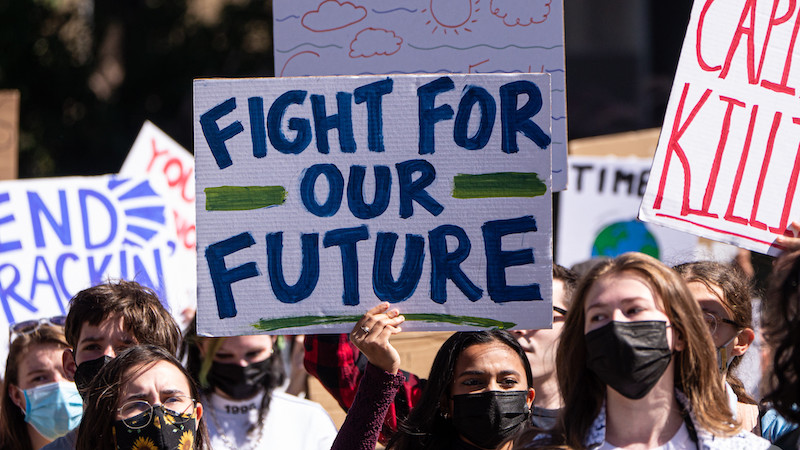Azerbaijan appointed 28 men and zero women to a key group tasked with organising the upcoming climate summit in the country
Update: An hour after this article was published, the government of Azerbaijan added 12 women and two men to the commitee. They did not comment on the reason for the change.
The recent appointment of an all-men committee, with members linked to the country’s oil and gas industry, to organize this year’s Cop29 climate summit in Azerbaijan is a major step backward for climate action.
We see this selection as yet another example of a gender gap in climate leadership with alarming implications for climate justice, effective climate action, and the Cop29 proceedings.
Gender justice is not just a progressive add-on we can include for tackling climate change.
The causes, consequences and solutions of climate change are highly gendered. Research also demonstrates that decisions designed and implemented to address existing inequities – including gender, ethnicity, disability, age, location and income – are not only ethically desirable but result in more effective and sustainable climate change actions.
Who decides at Cop?
Gender diversity in climate leadership is paramount for delivering climate action while leaving no one behind.
But gender imbalances at Cop not only persist but have worsened since the pandemic. Specifically, women constituted 35% of national Party delegates at Cop27, a slight decrease from Cop24 (38%) four years earlier.
A Cop29 committee with only male representation means that only men’s perspectives will inform the committee’s decision-making, missing out on a multifaceted understanding of the gender dynamics both in the consequences of climate change and their proposed solutions.
A complex crisis such as climate change requires diversity, and representation is important at all levels of implementation and can have rippling effects throughout societies.
For example, increased participation of women in government and business leadership has been a lever for addressing gender gaps at the household level.
In the private sector, companies with boards with 30% or more women members have better climate governance, resulting in better general environmental disclosure and fostering more innovation than those with less gender diversity.
Inexcusable decision
Inclusion of people from a range of points on the gender spectrum may be a pipe dream in many parts of the world. But a complete lack of women sitting on the committee is inexcusable and reveals the continuing gender gap in climate leadership.
A seat around the table is a bare minimum request. There is a difference between representation and participation and a gender quota is not a long-term solution to underlying inequities.
Even when women or gender minorities reach positions of power such as membership of the Cop29 committee, presence does not necessarily translate into a balanced representation of interests.
Azerbaijan appoints state oil company veteran as Cop29 president
Each choice made for Cop29 will have major future implications for women, young people and minorities, and yet they are left out of the decision-making from the outset with these appointments. It is disappointing to still need to point out the need for those affected by decisions to be part of the
Read More

